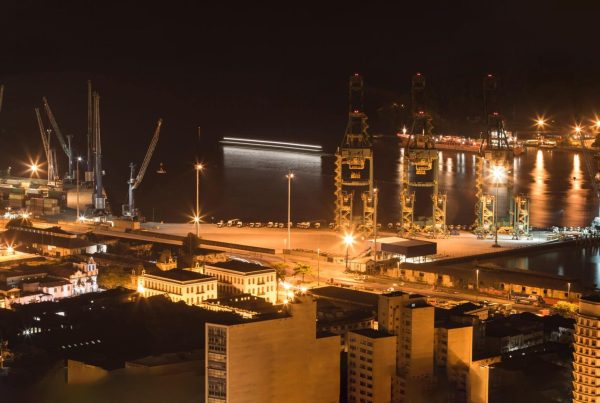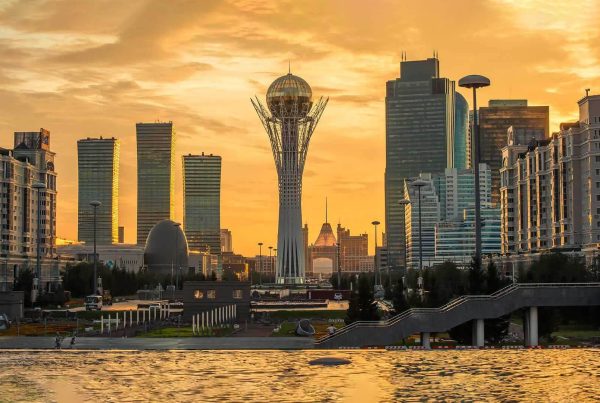In an era defined by globalization’s faltering steps and the precarious dance of supply chains, Mauritius finds itself at a critical juncture. The island nation, historically reliant on its strategic geographic positioning, has embarked on an ambitious journey to bolster its economic resilience. At the heart of this initiative is a bold foray into the Blue Ocean Economy through the development of regional cabotage services. This case study delves into the complexities and potential of Mauritius’ strategic pivot, offering insights into the intricate balance of economic foresight, environmental sustainability, and regional cooperation.
Background
The essence of Mauritius’ economic challenge lies in its geographic and economic reality. Positioned far from major ports like Colombo and Dubai, and neighboured by underserved nations such as Madagascar, Seychelles, and Comoros, Mauritius is at a crossroads. The regional maritime traffic, bustling between major ports from Durban to Mombasa and Jebel Ali to Mumbai, presents a unique opportunity. Mauritius’ proposition? To transform itself into a pivotal maritime hub through enhanced regional cabotage, effectively redefining its maritime routes and strengthening economic ties with its neighbours.
The Challenge
The strategic importance of logistics in Mauritius cannot be overstated—logistics is the circulatory system of the island’s economy. The nation’s current reliance on external supply chains poses risks of economic stagnation and vulnerability to global shifts. The words of Larry Fink, CEO of BlackRock, resonate deeply here, highlighting the global move away from interconnected supply chains towards more localized, controlled economies. Mauritius, in response, is driven to seize control of its maritime logistics to safeguard against economic disruptions.
Strategic Solution
The proposed solution centres on the establishment of a new maritime route that would not only reduce dependence on distant hubs but also stimulate economic growth within the region. The plan involves the acquisition of a vessel capable of navigating a carefully curated route connecting Mauritius with Seychelles, Madagascar, and beyond. The route calculations show a promising throughput, with potential stops at key ports calculated for optimal transit times and cargo handling.
Economic Feasibility and Viability
The financial underpinnings of this venture are meticulously laid out, with a focus on three different scenarios: owning a vessel, entering a charter agreement, or opting for a mixed solution. Each scenario is analysed for cost-effectiveness, operational flexibility, and potential profitability. The projections reveal a nuanced fiscal landscape where initial high costs may be offset by long-term gains in market control and economic integration.
Marketing Strategy and Market Penetration
The marketing strategy is built on a foundation of conservative estimates and deep market knowledge. With over two decades of experience in the logistics sector, the team is poised to leverage established relationships and in-depth local insights. The strategy includes targeting a modest share of the regional market, underscoring a cautious yet optimistic approach to capturing market demand.
Revenue Projections and Financial Health
Detailed financial projections provide a clear picture of the expected revenue streams, juxtaposed against operational costs and potential market fluctuations. The analysis includes best-case and worst-case scenarios, offering a spectrum of possible outcomes from a robust EUR 29 million in maximum revenues to a more conservative EUR 19 million under less favourable conditions.
Stakeholder Engagement and Investment Strategy
Critical to the initiative’s success is the engagement of key stakeholders, including local government bodies, private investors, and international maritime organizations. The proposed financial structures, including public-private partnerships and investment models, are designed to mitigate risks while maximizing the strategic interests of all parties involved.
Future Outlook
Mauritius’ foray into regional cabotage within the Blue Ocean Economy is more than an economic initiative; it is a visionary repositioning of the nation on the global stage. By harnessing its unique geographic advantage, Mauritius aims to create a sustainable maritime economy that not only withstands global economic pressures but also sets a benchmark for regional cooperation and economic innovation.
Recommendations
For Mauritius, the path forward involves continuous investment in maritime infrastructure, active engagement with regional partners, and a steadfast commitment to sustainability. Policymakers and business leaders must work in concert to navigate the complexities of this ambitious endeavour, ensuring that Mauritius not only rides the waves of economic change but also shapes them.





